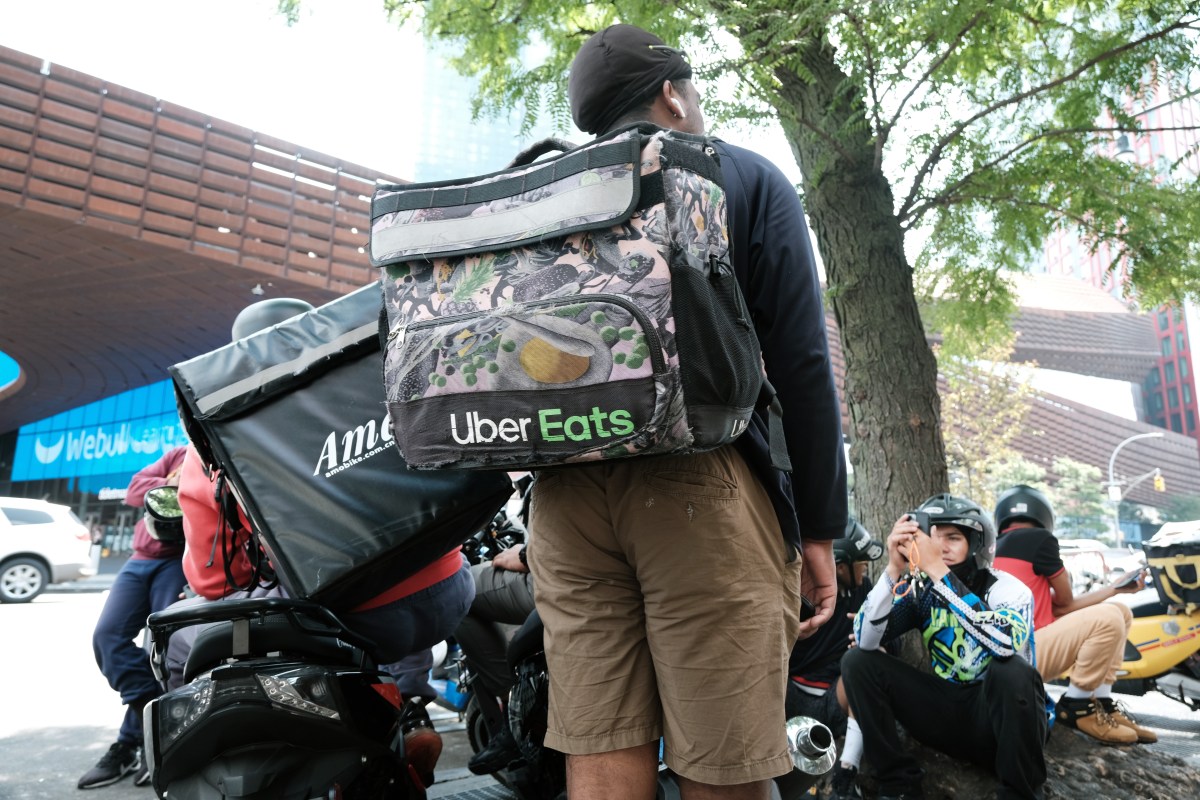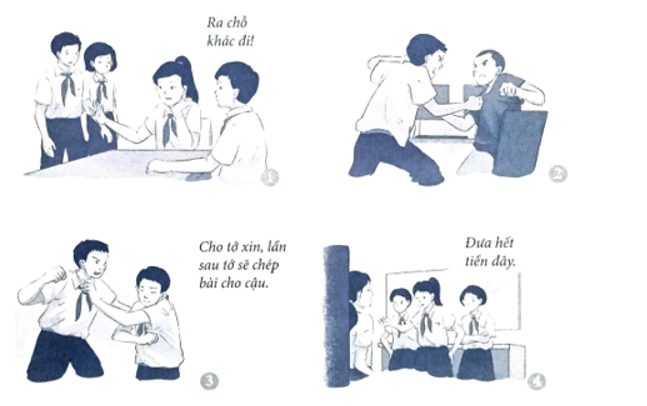Uber Accuses DoorDash Of Anti-Competitive Practices: A Deep Dive Into The Food Delivery Dispute

Table of Contents
Uber's Key Accusations Against DoorDash
Uber's lawsuit against DoorDash centers on several key accusations alleging anti-competitive practices that aim to create a monopoly in the food delivery space. These practices, according to Uber, severely limit competition and harm both consumers and restaurants.
Exclusive Contracts and Market Manipulation
DoorDash is accused of leveraging its substantial market share to secure exclusive contracts with restaurants. These agreements, Uber alleges, effectively prevent competitors like Uber Eats from partnering with those restaurants, limiting consumer choice and hindering fair competition within the food delivery market.
-
Examples of exclusive contracts forcing restaurants to prioritize DoorDash: Uber claims DoorDash offers incentives, such as waived fees or significant marketing support, to restaurants in exchange for exclusivity, making it difficult for smaller competitors to enter the market. These contracts often include clauses that penalize restaurants for using other delivery platforms.
-
Analysis of the impact on restaurant choice for consumers: The result of these exclusive contracts is a reduced selection of restaurants available through competing apps. Consumers may be limited to only those restaurants that have not signed exclusive agreements with DoorDash.
-
Discussion of the potential for reduced competition leading to higher prices: When competition is stifled, it can lead to higher prices for consumers and reduced incentives for restaurants to improve their service or offer competitive pricing. The lack of choice also limits consumer bargaining power.
Predatory Pricing and Subsidies
Uber further alleges that DoorDash engages in predatory pricing, using unsustainable discounts and subsidies to attract and retain customers, ultimately driving competitors out of the market. This strategy, Uber argues, is not financially sustainable in the long term, but it serves to temporarily dominate the market share.
-
Examples of DoorDash's pricing strategies and their impact on profitability: DoorDash's aggressive discounting, including deeply subsidized delivery fees and promotional offers, makes it challenging for other platforms to compete on price.
-
Discussion of the long-term sustainability of these practices: While these predatory pricing tactics might achieve short-term market dominance, they are likely unsustainable in the long run, potentially leading to significant financial losses for DoorDash once the subsidies end.
-
Analysis of the effects on smaller, less-funded competitors: Smaller, less-funded food delivery companies lack the resources to match DoorDash's predatory pricing, putting them at a significant disadvantage and potentially forcing them out of business.
Data-Driven Anti-Competitive Tactics
Uber claims DoorDash leverages its massive data resources to identify and target competitors' strengths, enabling it to strategically undercut prices and gain an unfair competitive advantage. This sophisticated data analysis allows DoorDash to react swiftly to competitor moves and maintain its market leadership.
-
How DoorDash might leverage its data for competitive advantage: DoorDash's extensive data on restaurant performance, customer preferences, and competitor pricing can be used to anticipate and counteract competitive strategies, creating an uneven playing field.
-
Ethical considerations and potential legal implications of such practices: The use of data to manipulate the market raises significant ethical questions and potential legal implications under anti-trust legislation.
-
Examination of the role of algorithms in shaping market dynamics: This case highlights the increasing influence of algorithms and data analytics on market competition, and the potential for their misuse to stifle competition.
The Potential Impact on the Food Delivery Market
The Uber vs. DoorDash legal battle has profound implications for the future of the food delivery market, impacting both consumers and restaurants.
Consumer Choice and Prices
The outcome of this lawsuit will directly affect consumer choice and pricing in the food delivery sector. A ruling against DoorDash could lead to increased competition, potentially translating to lower prices, a wider selection of restaurants, and improved service.
-
Potential scenarios for the market under different legal outcomes: A win for Uber could lead to greater market share diversification, benefitting consumers. Conversely, a loss for Uber could solidify DoorDash's dominance, potentially hindering consumer choice and maintaining or even raising prices.
-
Impact on consumer spending power: Increased competition resulting from a favorable ruling for Uber could ultimately strengthen consumer spending power, allowing them to access more affordable food delivery options.
-
The role of regulation in shaping the food delivery landscape: This case underscores the need for clear regulations regarding anti-competitive practices in the rapidly evolving food delivery sector to ensure a fair and competitive market.
The Future of Restaurant Partnerships
The dispute underscores the complex power dynamic between food delivery platforms and restaurants. The legal outcome could reshape this relationship, leading to changes in contracting practices and influencing the independence of restaurants.
-
How restaurants might be affected by the ruling: A ruling against DoorDash could empower restaurants by reducing their reliance on exclusive contracts and giving them greater control over their delivery partnerships.
-
Potential changes in restaurant-platform agreements: The outcome of the case might lead to more transparent and equitable agreements between restaurants and delivery platforms, promoting fairer competition.
-
Implications for the independence of restaurants: A more competitive market could lessen the power imbalance between platforms and restaurants, granting restaurants more independence in choosing their delivery partners.
Conclusion
The Uber vs. DoorDash dispute is a pivotal moment for the food delivery industry. Uber's accusations of anti-competitive practices highlight the crucial need for fair competition and transparency in this rapidly expanding market. The outcome of this legal battle will undoubtedly set a precedent for future regulatory actions and shape the competitive landscape for years to come. To stay informed about the latest developments in this significant case involving Uber and DoorDash, and the broader implications for anti-competitive practices in the food delivery market, continue to follow news and analysis regarding this ongoing case. Understanding the nuances of this dispute is critical for both consumers and businesses operating within the food delivery ecosystem.

Featured Posts
-
 Updated Batman Dc Relaunches Iconic Hero With New 1 And Costume
May 08, 2025
Updated Batman Dc Relaunches Iconic Hero With New 1 And Costume
May 08, 2025 -
 Mlb Experts Slam Angels Farm System In Latest Rankings
May 08, 2025
Mlb Experts Slam Angels Farm System In Latest Rankings
May 08, 2025 -
 The Great Decoupling Rethinking Global Trade And Investment
May 08, 2025
The Great Decoupling Rethinking Global Trade And Investment
May 08, 2025 -
 Performance Geometrique Superieure Des Corneilles Par Rapport Aux Babouins Une Analyse Comportementale
May 08, 2025
Performance Geometrique Superieure Des Corneilles Par Rapport Aux Babouins Une Analyse Comportementale
May 08, 2025 -
 Racha Imparable Dodgers Mejor Inicio En La Historia Romperan El Record De Los Yankees
May 08, 2025
Racha Imparable Dodgers Mejor Inicio En La Historia Romperan El Record De Los Yankees
May 08, 2025
Latest Posts
-
 Giu Tre An Toan Bai Hoc Rut Ra Tu Vu Bao Hanh Tre Em O Tien Giang
May 09, 2025
Giu Tre An Toan Bai Hoc Rut Ra Tu Vu Bao Hanh Tre Em O Tien Giang
May 09, 2025 -
 Vu Viec Bao Mau Bao Hanh Tre Em Tien Giang Cong Dong Len Tieng Doi Cong Bang
May 09, 2025
Vu Viec Bao Mau Bao Hanh Tre Em Tien Giang Cong Dong Len Tieng Doi Cong Bang
May 09, 2025 -
 Can Lam Gi Sau Vu Bao Mau Tat Tre Em O Tien Giang Dam Bao An Toan Cho Tre Em
May 09, 2025
Can Lam Gi Sau Vu Bao Mau Tat Tre Em O Tien Giang Dam Bao An Toan Cho Tre Em
May 09, 2025 -
 Wfmy News 2 Reports Nc Daycare Suspended By The State
May 09, 2025
Wfmy News 2 Reports Nc Daycare Suspended By The State
May 09, 2025 -
 Brekelmans India Strategie Maximaliseren Van Samenwerking
May 09, 2025
Brekelmans India Strategie Maximaliseren Van Samenwerking
May 09, 2025
